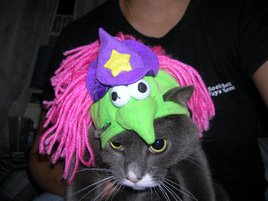Librarians Want to Out-Google Google With a Better Search Engine
Have you ever wished for a personal reference librarian, an information guru to point you to the most reliable sites whenever you search the Web? A new search-engine project aims to simulate something like that. The trick? Weighting search results so that librarians’ picks rise to the top.
Called Reference Extract, the project is being developed by the Online Computer Library Center and the information schools of Syracuse University and the University of Washington. OCLC is an international cooperative that shares resources among more than 69,000 libraries in 112 countries and territories. A $100,000 grant from the John D. and Catherine T. MacArthur Foundation is covering planning costs.
According to the project proposal, the search engine “will be built for maximum credibility by relying on the expertise and credibility judgments of librarians from around the globe.”
One of the founders is Michael B. Eisenberg, dean emeritus and professor at Washington’s information school, who has called for people to submit ideas on the project’s Web site. “Google is everywhere, easy to use, and somewhat effective in offering useful results. But, I can’t always trust the results,” he wrote. “Is there a way to improve on that?” The idea is to cull and promote recommendations from tens of thousands of librarians around the world. No word on the technical architecture that would power the search engine.
(The vision reminds me of The Librarian, the uncannily human-like software in Neal Stephenson’s famous science-fiction novel Snow Crash.)
Entrepreneurs have been trying for years to beat Google at its game. Could the combined expertise of tens of thousands of librarians conquer the juggernaut? —Lisa Guernsey
 The Friday afternoon magazine folding trend continues. Jossip is
The Friday afternoon magazine folding trend continues. Jossip is 

